Learn some basic information about breast cancer and spread awareness among your family and friends.
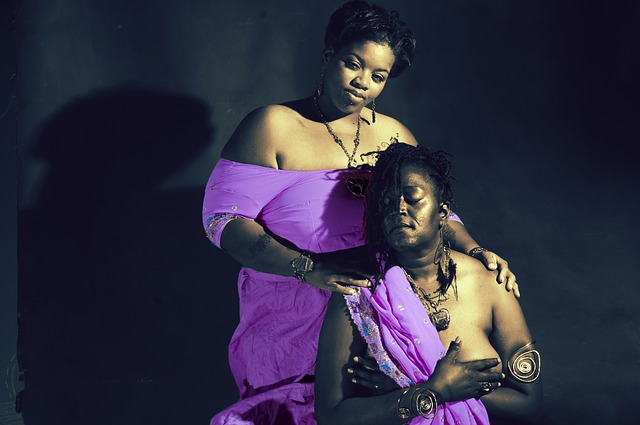
“Attitude is a little thing that makes a big difference.”
–Wiston Churchill
Hey, folks!
Breast cancer is a huge problem, and like always, the first step towards solving it is getting to know it.
We’ll do our best to address as many of the basic and some of the advanced information regarding breast cancer.
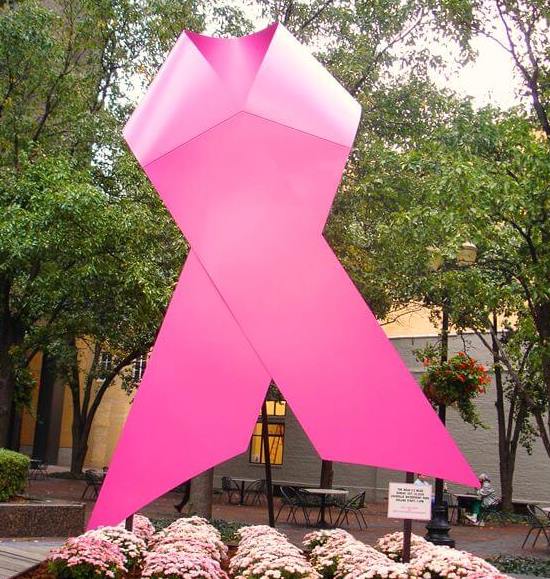
What is cancer?
We’ve all heard of a disease called “cancer” before since sadly it’s a very common one nowadays. But still many don’t know what exactly cancer is.
Cancer is a broad term for a class of diseases characterized by abnormal cells that grow and invade healthy cells in the body.
Having a tumor doesn’t necessarily mean having cancer. Tumors can be benign or malignant. Benign ones do not spread and are not cancerous, while malignant ones are made of damaged cells that grow out of control and are known as cancer.
If healthy cell’s DNA gets damaged, the cell becomes mutated. As such, it begins an unchecked reproduction resulting in more and more damaged cells.
There are many different types of cancer and they are usually named by the organ or tissue in which they appear.
One of the great problems that come with having cancerous cells anywhere in our body is the process called metastasis – the migration of cancerous cells to other parts of the body, where they start damaging other tissues and organs. The latter can occur if cancerous cell breaks away from the original tumor and enters blood vessels or lymph vessels.
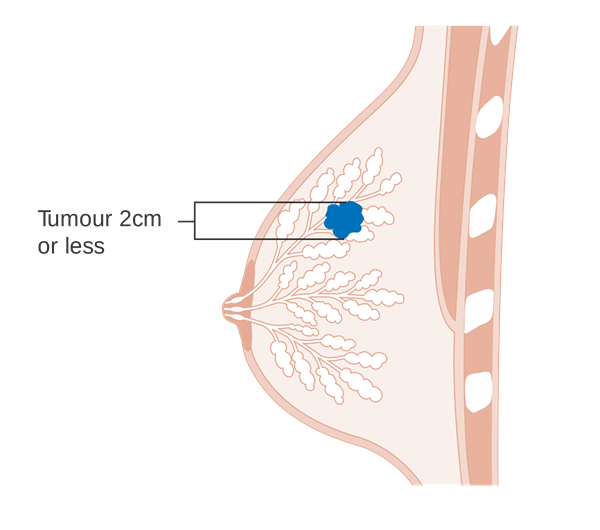
Stats and facts about breast cancer
- Breast cancer is the most common type of cancer among women.
- On average, every eighth woman will be diagnosed with breast cancer in her lifetime.
- About 250,000 women are diagnosed with breast cancer each year in the US and more than 40,000 die due to it.
- It is usually diagnosed among women, but it can be found among men too. On average over 2,500 men are diagnosed with it in the US each year.
- On average, every 2 minutes a woman is diagnosed with breast cancer and every 13 minutes a woman dies of it.
- Breast cancer can be cured.
- There are almost 3 million breast cancer survivors in the US today.
- Women that overcome (breast) cancer are usually one of the strongest women out there.
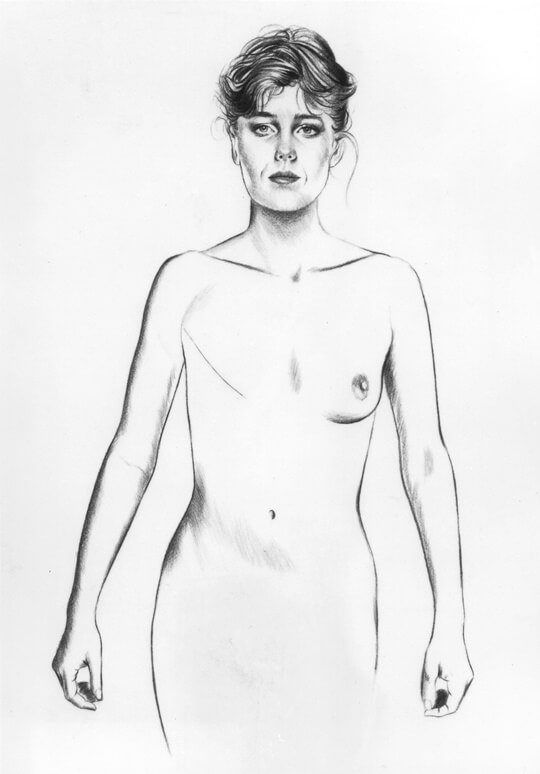
“Once I overcame breast cancer, I wasn’t afraid of anything anymore.”
-Melissa Etheridge
The main cause of breast cancer
Unfortunately, the main reason behind the occurrence of breast cancer is unknown. Many doctors and scientists claim that genetics play the major role, others blame lifestyle, especially stress. However, there are some known risk factors that make the occurrence of the breast cancer more possible. Moreover, some of those can be avoided, while others can’t.
You should understand the meaning of risk factors – it is a possibility of getting (in our case) breast cancer. Many women with high-risk factors never develop breast cancer.
There are things that can be done to address any of the potential causes. In the case of genetics, there are tests that can be performed to learn how high is the risk of getting a certain type of cancer. On the other hand, there are lifestyle guidelines you can follow to decrease the chance of getting breast cancer.
Lifestyle guidelines to reduce the risk factors
- Avoid alcohol as much as possible.
- Avoid smoking (first-hand smoking and passive smoking).
- Be physically active.
- Eat healthy food. Avoid saturated fat and “fake” carbs.
- Avoid chest radiation if possible (X-ray, CT-scan).
- Do not undergo combined hormone replacement therapy.
- Having your first child at an older age (38+) or never having given birth can also increase the risk for breast cancer.
- Do everything that is in your power to prevent stress. You can find some helpful guidelines in one of our previous challenges.
“I believe in pink. I believe that laughing is the best calorie burner. I believe in kissing, kissing a lot. I believe in being strong when everything seems to be going wrong. I believe that happy girls are the prettiest girls. I believe that tomorrow is another day and I believe in miracles.”
-Audrey Hepburn
Genetic factors
- Gender: Women are 100 times more likely to get breast cancer than man.
- Race: Caucasian women are more likely to get breast cancer the women of other races.
- Age: Over 66 % of women diagnosed with breast cancer are over 55 years old.
- Breast tissue density: Having dense breast tissue makes lumps harder to detect, which can increase your risk for breast cancer. To determine what type of breast tissue you have to talk to your physician.
- Health history: In case you’ve been diagnosed with abnormal breast cells (atypical hyperplasia, lobular carcinoma in situ or ductal carcinoma in situ) before or if you’ve been diagnosed with breast cancer on one of your breasts before.
- Menstrual history: Early first menstruation (before age 12) or late menopause (after 55) can both increase the risk for breast cancer.
- Family history: If your mother, sister, father, or child has been diagnosed with breast or ovarian cancer, you have a higher risk for breast cancer. Even higher risk if any of them was diagnosed before the age of 50.
- Genome changes: The risk for breast cancer increases with the mutation of some genes (e.g.: BRCA1 and BRCA2). The latter can be determined by genetic tests. Those gene mutations can be passed on descendants.
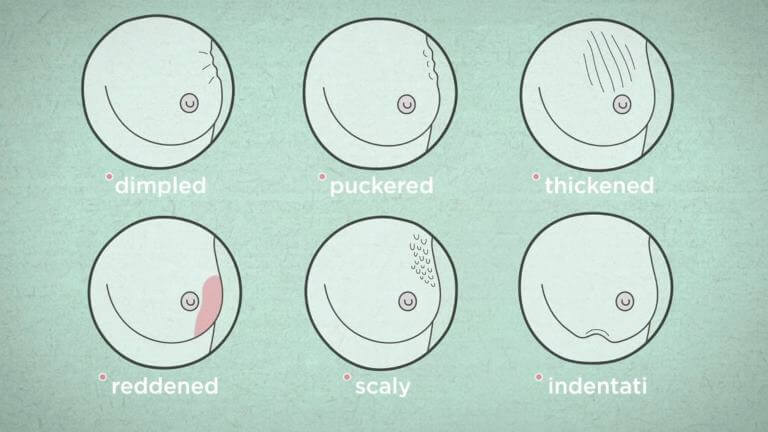
Remember, you have no control over the genetic risk factors, however, you do have the ability to pay some extra attention to your breasts.
There are simple tests that can be easily performed at home by yourselves or your partner. Those are important since they can help you detect any kind of tissue change in early stage. Moreover, early detection and instant appropriate treatment result in very high cure rate.
Please, don’t get scared if you fit in some or even all of the above listed genetic risk factors. It doesn’t necessarily mean you’ll get a breast cancer yourself. Keeping a cool head is very important. Worrying about getting cancer can put you in a state of constant stress and frustration which can increase the risk of cancer.
However, applying some extra caution and performing regular exams is in place. And remember, even if you’re diagnosed with breast cancer, do your best to stay positive.
“When life kicks you, let it kick you forward.”
-Kay Yow
Check your breast regularly
If you have at least three of the above-mentioned characteristics in the bold font, you should increase your attention and perform regular breast check.
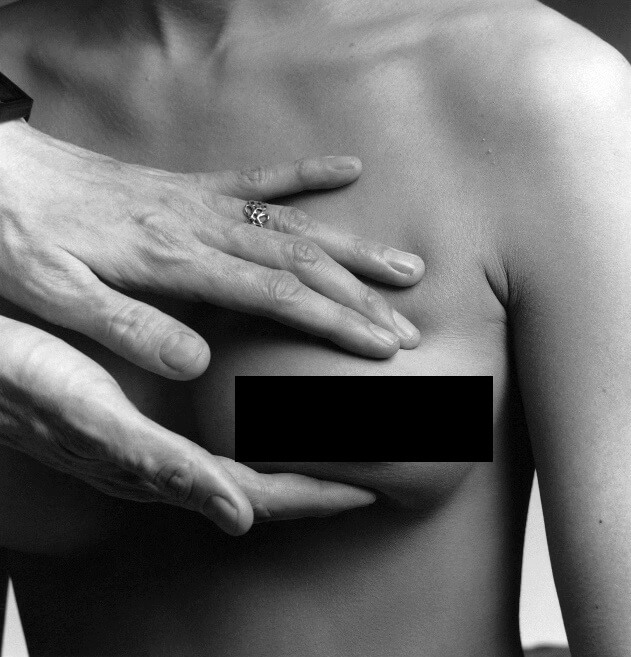
Make sure to use a firm and smooth touch. You should cover your whole breasts from top to bottom and from left to right. If you detect any kind of lumps or other changes, do not hesitate to contact your doctor.
Make sure to perform these exams regularly (once per month is OK). Here are more detailed instructions of a breast self-exam.
Alternative methods that might help prevent breast cancer
- Breast massage – firm but gentle circular movement with your or partner’s hands can be helpful. It will increase blood flow which is always a good thing for any type of tissue.
- Having more sex. Specific “happy” hormones such as Oxytocin and DHEA are released during sex and orgasm. These hormones may help to keep breasts cancer-free.
- Certain diet or food is supposed to help prevent cancer: garlic, broccoli (steam it, don’t microwave it), Brazil nuts, lemons, blueberries, artichokes, salmon, kiwi, scallions, sauerkraut, tea, apples, avocado, bean sprouts, bran cereal, cabbage, carrots, cherries, corn, dates, whole eggs, ginger, grapefruit, grapes and raisins, kale, mushrooms, peas, and pomegranate. You can find some amazing and healthy (cancer-fighting) recipes here.
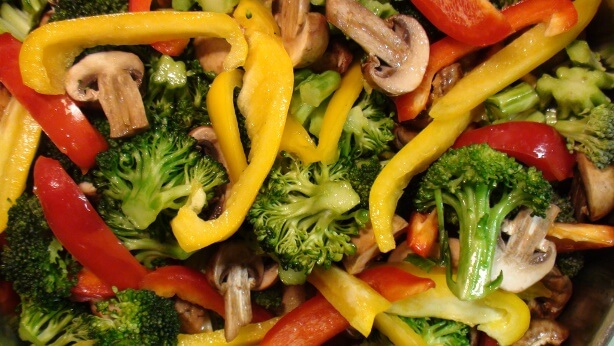
There is no assurance that any of this will help, but they will sure make you healthier in general, which is always a good thing. And the best thing is that all of the alternatives mentioned above are noninvasive and can also bring you pleasure. 😉
Take-home points:
-
Learn about the breast cancer and spread awareness.
-
Breast cancer is the most common type of cancer among women.
-
A person can fully recover if breast cancer is discovered in early stages.
-
There are things you can do to prevent tumors or at least discover them as soon as possible.
-
A healthy mind in a healthy body is the best way to go.
-
The most important advice: always stay positive; the power of the human mind is amazing.
Stay healthy!
Love,
Good Earthlings
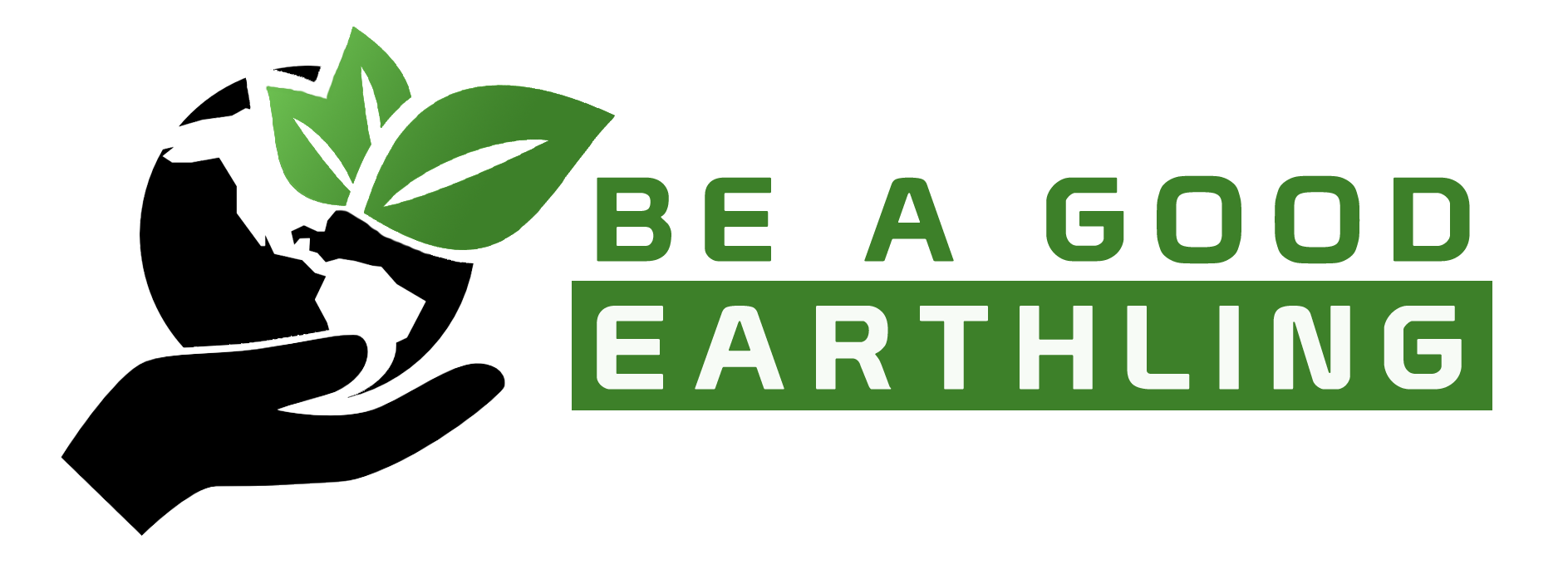
it is well said that if one cares for even one woman then that cures goes to the whole nation for mother are the one that holds us all. this post about the breast cancer have helped a lot more especially the woman for the cancers death among woman is increasing nowadays
thanks for sharing this valuable information and promise to spread it to other woman around me
cheers
Jose
Thank you, Jose.
Love,
Good Earthlings